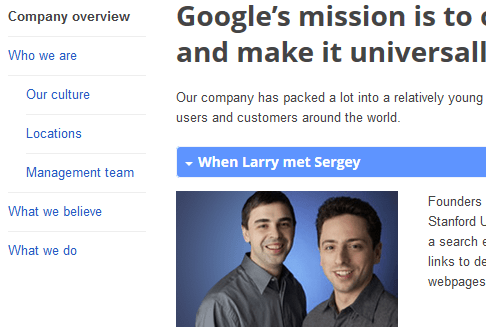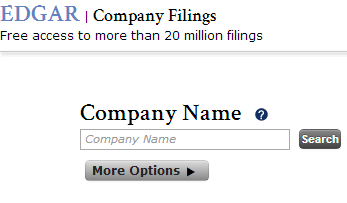If you're looking for a job, the interview aspect is probably the most nerve-wracking aspect of the search. Bombing an interview means losing out on an opportunity that was within your grasp but slipped through your fingers at the last moment. And while most people focus on dressing well and being charismatic, the importance of pre-interview research is often overlooked.
Companies aren't just looking for another grunt worker to add to their team - they want someone who's excited, motivated, and eager to contribute to said company's mission. You aren't the only one interviewing, so if it comes down to two candidates where one has researched and the other hasn't, you can be sure they'll go with the former.
Pre-interview company research will be worth your while. Here's where you can look and what you should be looking for.
1. Company Website
The very first place you want to look is the company’s main website. Depending on where you're interviewing the company may not be big enough or public enough to warrant a website, but most businesses - even the small ones - will have one. This is probably the best resource you'll find.
Everything that's posted on a company's website has been placed there by the company on purpose. This is what they want you to know about them, about their culture, about their mission, about their focus. You may also find a complete list of staff (if the company is small) or a list of all executive heads (if the company is large). This is all good stuff to leverage in an interview.
In addition, check the website for a company blog. Company blogs are a great place to get a personalized feel for what the company finds important. If the prospective company's blog makes mention of green energy, then the company philosophy is likely to gear towards environmental-friendliness. This kind of information, too, is great for molding your interview.
2. Google Search
Most people use Google to find a company's website and stop there. If you really want to benefit, keep going and dig deeper. In particular, study the company's competitors, study their field, and look for relevant press releases and news articles about the company.
Press releases are often overlooked by those who aren't veterans. Most press releases are released by the company itself, which means everything included within the release is meant to mold your opinion of them in a particular way. Find out what kind of image they want to show and what that indicates regarding their company culture, mission, and philosophy.
Don’t forget to study the competition. What are they doing right now? How are they reacting to advancements in your prospective company? How is your prospective company reacting to competitors? What direction is the field moving in? Your potential employers will be impressed if you show them that you're on top of these things.
3. LinkedIn
Nowadays, LinkedIn is almost a necessity if you want to keep your network of opportunities updated. It’s the social network for professionals and if you don’t have an updated LinkedIn profile, you may be missing out on a lot of potential job offers and opportunities.
For those of you with job interviews lined up and you want to do a bit of research, use LinkedIn's company pages. These pages will provide you with a lot of information that will prove useful, such as current employees, working locations, operation details, and more.
It’s also a great place to find more details on specific persons. If you know who's going to be running your interview, look for their LinkedIn profile and learn a bit about them. If you know who you'll be working with after you land the job, learn a bit about them as well.
There's just so much depth to LinkedIn that it would be impossible to cover it all in just a few paragraphs, but Aaron has written a wonderful guide to using LinkedIn for job research so go and check that out ASAP to maximize your results from LinkedIn. We have even published a whole LinkedIn Guide.
4. Glassdoor
Glassdoor is aptly named as it provides you a transparent window through which you can see the inner culture of companies. Users can anonymously post about their experiences working in certain companies and provide information regarding such things as salaries and interviews. It’s a wonderful website to gather estimates on what it would be like to work at company So-and-So.
When users submit company reviews, they can discuss the various pros and cons of working there as well as provide “advice to senior management” regarding what could be better. You can expect your working experience to be similar. The Glassdoor database has over 200,000 companies so there's a good chance that wherever you’re interviewing, you’ll be able to glean some useful information to use as leverage or a baseline.
5. Financial Snapshots
If the prospective company is public and you're in the United States, you can grab financial statements from the U.S. Securities and Exchange Commision. Said companies are required to make regular filings to the SEC, which means you can keep tabs on their performance and growth over the past few years. The website is easy to use and knowing the company's recent track record can prove useful in an interview.
Conclusion
By utilizing these tools, you should be well on your way to being properly equipped for a job interview. Remember that it's not just about rote memorization of company trivia. The purpose of this research is for you to align yourself with their purpose as a company and to find ways in which you can contribute to their mission. Approach it from that angle and your job interviews will conduct themselves much better.
Looking for other ways to prepare for a job interview? Saikat has rounded up a number of sites you can use to get tips on job interview questions and answers.






